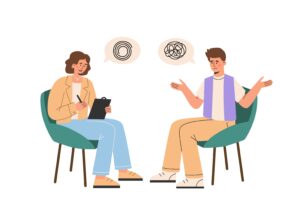Inpatient or outpatient alcohol rehabilitation programs offer a variety of treatment options. Below is an overview of the most common treatment methods you may encounter in a rehabilitation facility. The following are the types of therapy that use for treating alcoholism. In laguna beach rehab people can change their minds and come out from all addictions. Let’s discuss the best Therapy types to treat alcoholism.
Contents
Talk therapy

Psychotherapy is a classic way to carry on a conversation. During psychotherapy, patients talk to trained psychologists about their problems and experiences. Talk therapy sessions can be conducted in individual, group, or family settings. Patients and their psychologists can discuss daily challenges, old problems, and past traumas. Psychotherapy allows psychologists to make mental health diagnoses based on psychoanalysis. A psychiatrist who performs psychotherapy can prescribe medications for patients.
In the case of psychotherapy for alcoholism, a psychologist can help patients better understand and manage their desires and stay motivated to achieve their sobriety goals. Psychotherapy sessions can last weeks or months. During psychotherapy, the psychologist and patient develop a relationship based on trust, openness, and confidentiality. Psychotherapy serves as a road map for doctors. He accompanies them in understanding their customers and developing solutions. There are several approaches to psychotherapy, such as psychoanalysis, behavioral therapy, cognitive therapy, and integrative or holistic therapy.
Cognitive Behavior Therapy (CBT)

Cognitive behavioural therapy (CBT) is a proven method of relieving the severity of alcoholism. The basic premise of CBT is the importance of identifying negative thoughts and behaviors and replacing them with positive ones. The CBT session is a conversation between the patient and the psychologist. CBT is a solution-focused treatment approach that focuses less on diagnosis and more on constructive action, e.g. B. challenging harmful beliefs, confronting fears, role-playing to increase social interaction, and developing strategies to stop using alcohol or drugs. CBT is often effective in just five sessions.
Dialectical Behaviour Therapy (DBT)
Dialectical Behavioural Therapy (DBT) is another form of evidence-based therapy. The DBT method departs from the assumption that everything is connected, the world is constantly changing, and opposing elements (thesis and antithesis) can be synthesized into better elements or greater truths. These assumptions form the basis of the dialectical philosophical system. In practice, individual or group DBT sessions involve learning to live in the present instead of dwelling on the past, managing emotions, and suffering, and practicing honest communication.
Ultimately, DBT aims to help patients find emotional balance and embrace positive change. This method is dialectical because the practitioner who develops it wants the patient to be able to synthesize past changes and acceptance to create a better life. Research shows that DBT is effective in people struggling with alcoholism and other substance use disorders.
Motivational Interview
In counseling, motivational interviewing (MI) is a method of encouraging patients to overcome ambivalence, set immediate goals for self-improvement, and stay motivated to achieve them. MI is a popular treatment technique for addiction because many people feel powerless against addiction and benefit from an infusion of the will to
choose against it. In motivational talks, the therapist encourages the patient to make changes, such as giving up alcohol.
The Motivation Interview is a brief, client-centered, semi-directive approach to psychological treatment that focuses on increasing and strengthening the client’s motivation to change. MI aims to broaden the client’s perspective on the importance of change. MI is useful for clients who are less motivated or less willing to change. The practice involves a supportive and empathetic form of counseling style coupled with denial. MI is a brief intervention where the counselor and client meet for an average of 1 to 4 sessions.
12 level facilities
The 12 Step facilities program is a support community where people open up about their struggles with substance abuse. The 12-step facilities program complements other forms of therapy and gives patients something to talk about with their psychologist. The 12-step facilities approach is effective in helping people achieve long-term sobriety. For this reason, therapists sometimes facilitate the process of joining a 12 Step facilities group for their clients and integrating their clients. 12 Step materials and meeting experiences into their sessions. In this therapy session, it will help to complete all the tasks easily and get everything done easily.
Conclusion
In conclusion, there are several therapy types that can be used to treat alcoholism. Each one has its own benefits and drawbacks, so it is important to consult a qualified healthcare provider to determine which type of therapy is right for your specific needs. From cognitive behavioral therapy and motivational interviewing to group counseling and family interventions, each type provides unique approaches to helping people overcome their addiction to alcohol and lead healthier, happier lives. No matter which type of therapy is chosen, recovery from alcoholism is an achievable goal with the proper support and treatment. MantraCare provides the best online De-addiction program.


